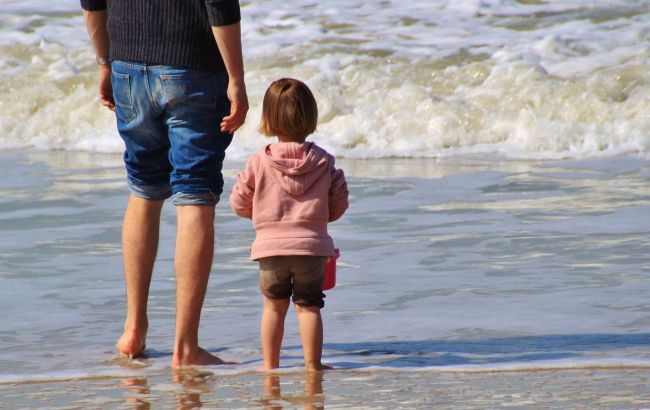Why we feel physically and mentally better near sea: Scientific facts
 We are happier and healthier by the sea and scientists have explained why (photo: Pixabay)
We are happier and healthier by the sea and scientists have explained why (photo: Pixabay)
The sea evokes a sense of calm, fullness, and lightness for many people. It seems that the whole world becomes smaller, time stops, and the noise just disappears when you look at the sea or even swim in it. And scientists at The Conversation say there are interesting scientific explanations for this.
What we feel by the sea
At the sea, we often feel admiration or amazement, a sense of happiness, boundlessness, freedom, and insignificance in the face of something huge.
Maybe it's because we are 70% water ourselves, or maybe it's because the enormous scale of the sea gives us perspective, reminding us of our connection to something much bigger.
This range of feelings, called "awe," has been carefully studied by psychologists and scientists. Staying near natural bodies of water, especially the sea, is beneficial for health, and this effect is called "blue health."
Why do we feel happier near the sea
According to the researchers, being near water often means that we engage in more physical activity, while natural surroundings also have a restorative effect on our mental well-being and social life. That is, it has mental health benefits.
In addition, blue spaces can improve the overall quality of the environment, which has indirect health benefits.
Life on Earth originated in the oceans and, in addition to being a vital source of nutrients and resources, the sea is our biological point of origin.
Our sweat and tears are similar to the salty composition of the sea, and there are remarkable similarities between the way the elements of the sea and our bodies work. This is called biophilia in a more general application to the natural environment.
The biophilia hypothesis is one of the three main theories that explain the human attraction to the sea. The other two are the psychophysiological stress recovery theory and the attentional recovery theory. All three theories are not mutually exclusive, and all contribute to the sense of well-being that the sea gives us.
Whether it's walking along the coast, boating on the surface, diving under the waves, or observing or meditating near it, the sea allows us to put our mental difficulties aside and feel free.
It can help us find what psychologists call "restoration," which is a sense of well-being that we find hard to find elsewhere.
What does "blue health" give us
It can be a powerful tool for reducing stress and improving our mood. Our connection with nature helps us to put our own worries in perspective - it restores our focus, distracts us from the worries that dominate our daily lives.
Many people with disabilities or injuries that prevent them from walking or moving easily on land can swim in the sea. It can offer them a moment to close their eyes, breathe, and perhaps even experience bodily freedom or autonomy.
For this reason, water sports (especially at sea) can play a huge role in promoting the psychological well-being of people with disabilities. Boats, equipment, and activities can be adapted to accommodate everyone, regardless of their abilities.
Not only does this bring physical and emotional well-being, but it also allows people, regardless of their limitations, to experience the freedom and connection that the sea has to offer. The sea belongs to everyone, and we all deserve to experience its immense transformative power.
Benefits for physical health
Strengthening the immune system. Sea air is rich in iodine and minerals that help activate the immune system.
Healthy skin. Bathing in salt water cleanses the skin and reduces complications in some dermatological diseases, such as eczema.
Reducing stress for the body. Swimming in the sea trains muscles, improves blood circulation, and promotes relaxation.
Benefits for mental health
Reducing stress. Wave noise acts as a natural therapy by reducing cortisol (stress hormone) levels.
Improve mood. Contact with the sea benefits the production of serotonin, the hormone of happiness.
Increased concentration Time by the sea improves the ability to focus and generally helps clear the mind of unnecessary thoughts.
This material is for informational purposes only and should not be used for medical diagnosis or self-treatment. Our goal is to provide readers with accurate information about symptoms, causes, and methods of detecting diseases. RBС-Ukraine is not responsible for any diagnoses that readers may make based on materials from the resource. We do not recommend self-treatment and advise consulting a doctor in case of any health concerns.

